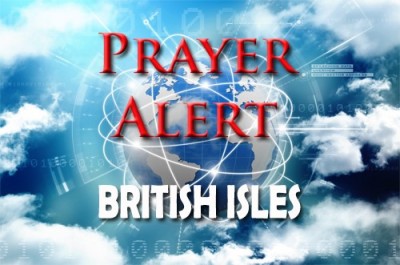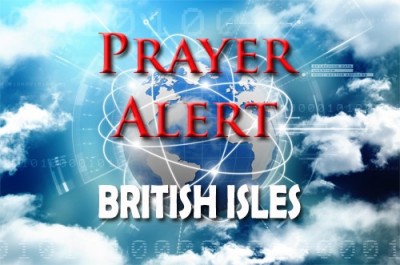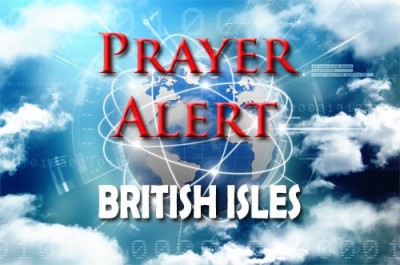PM: York to be Parliament's temporary home?
16 Jul 2020MPs voted on 1 February 2018 to approve the renovation work at the Houses of Parliament, which will entail their moving out. The building is a safety risk for all those who work in it, and urgent action is needed. As well as the fire threat, it is vulnerable because of an antiquated sewage system and areas riddled with asbestos. Plans have been reviewed due to the impact of coronavirus on public finances. Although the move, if it happens, is expected to take place around 2025, we can pray for decisions being made now. Boris Johnson has suggested that Parliament could move to York while the Palace of Westminster undergoes renovation: see.
Huge rise in online child abuse images
16 Jul 2020For months both adults and children, many of whom are working at home, have spent significantly more time online. Now the Internet Watch Foundation reports that images of child abuse images online have increased by almost 50% during lockdown. In the eleven weeks from 23 March its hotline logged 44,809 reports of images, compared with 29,698 last year. The Government has promised to draw up legislation to reduce online harm. The fastest-growing category of images being removed in recent years has been those generated by children after grooming or coercion. The updated figures are likely to renew the debate about how to keep children safe, after months of parents grappling to limit children’s online activity. There are now growing concerns that appropriate draft legislation will be delayed by the pandemic.
Children's book about hope, not darkness
16 Jul 2020A children's illustrator and an author started a conversation about death, after being told the subject was ‘off the table’. ‘Where is Uncle Al?’ is for 4- to 7-year-olds. Author Eva Hubs and artist Sarah Harrison published the book after being encouraged by health professionals. The book is about hope not darkness, from a Christian and Buddhist perspective. It centres on Lily, who hears about Uncle Al but is given different answers when she asks where he is. Sarah says we pretend to know about death and stop exploring it, so Lily asks adults questions that they find difficult to answer. A childhood bereavement charity comments that stories play an important role in helping children make sense of death. The book’s pictures and words feed children's imaginations, making them feel less isolated, when they are very alone with their grief.
Europe: simple church
16 Jul 2020The pandemic has been disruptive for centralised service-based models of congregation. However, churches based on small groups are less affected by the crisis. With self-organisation in simple, organic, house church movements, there is no dependence on church buildings and pastors - making these groups more financially resilient. Their resources are available for mercy ministry and mission in discipleship movements. In the last twenty years, we have seen a gradual paradigm shift in the church on what it means to follow Jesus. The emphasis is no longer on church membership or a program you follow, but on a daily life led by God's Spirit in connection with others, both inside and outside church walls. The church is seen as an organic network. This requires abandoning control and systems, and discerning with other Christians how and where God is at work. Coronavirus can help the church become such a movement, consisting of people who live and act in dependence on Christ: see https://mailchi.mp/joelnews/jni-1177?e=10cd13704c
Judges plunge Brexit talks into chaos
16 Jul 2020The European Court of Justice has rejected a crucial EU-US data sharing deal that could have serious ramifications for the relationship between Europe and Britain. Thejudges rejected the Privacy Shield agreement between the bloc and the USA. The tool is used by thousands of firms to protect Europeans’ personal data when it is transferred across the Atlantic. The agreement prompted complaints amid privacy concerns about the United States’ surveillance watchdogs. As part of the post-Brexit future relationship talks, the two sides want to establish an agreement to enable smooth flows of data after the transition period expires in December. The UK has fully rearranged the EU’s procedures into national law, but has a controversial track record in mass surveillance. In 2018 a European court ruled the UK had breached human rights protections in its mass surveillance programmes.
Sudan Christians beginning to feel welcome
16 Jul 2020After more than three decades of Islamist rule, Sudan has passed reforms that include allowing non-Muslims to drink alcohol and have abolished the apostasy laws and flogging. From a Christian perspective, reforming the laws of the old regime allows Sudanese Christians to feel welcome in their country again now that Sudan is moving towards a government based not on religious values, but on general human rights is a major development. Pray that this move leads to an ongoing democratic transformation; so that continued reforms within government and society will favourably impact the lives of all minorities. Pray for Sudanese Christians to take advantage of new freedoms and begin to provide hope to the Muslim majority population.
Global persecution in the pandemic
16 Jul 2020Every six minutes a Christian is killed for following Jesus. For millions, the truth is an extremely dangerous thing to believe. 58% of Iraqi and Syrian refugees are Christian. Ongoing wars and continued presence of terrorists have created the largest refugee crisis in history, forcing over four million Christians from their homes. Imagine facing torture and death for just saying ‘I believe in Jesus Christ’. This is a reality for over 245 million Christians today who often face physical violence towards themselves or loved ones. They lose homes and jobs because of their faith. May persecuted Christians experience renewed strength to follow Christ, particularly during this pandemic, when refugee camps make it impossible to implement social distancing. Our brothers and sisters in Christ need help and support more than ever. From Morocco to Iraq various forms of lockdown are in force, there are food shortages and hospitals are under strain. Christians are at the bottom of the social ladder: see https://htp.org/how-covid-19-is-impacting-persecuted-christians-and-how-you-can-help
North Korea: Prisoner 42
16 Jul 2020After fleeing from North Korea to China, Prisoner 42 was captured and sent to a North Korean prison camp, where she spent one year in solitary confinement. Guards shaved her head and stripped her. Each morning when they called for her, she crawled out of a door flap, typically used for dogs or cats, and kept her head bowed low because she was not allowed to make eye contact with the guards. They would ask her the same questions, ‘Why were you in China? Who did you meet? Did you go to church? Did you have a Bible? Did you meet any South Koreans? Are you a Christian?’ She lied to stay alive. She was beaten and kicked daily. She said,’ It hurts the most when they hit my ears. My ears ring for hours, sometimes days’. She was later sent to a re-education camp where she met other secret Christians. After two years she was released from detention.







